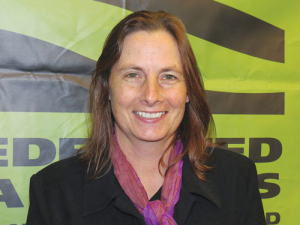Farmers are out of patience with local and regional councils treating them as cash cows.
A recent Federated Farmers survey shows fewer than 4% of farmers believe they get good value for money from their local government rates.
It is local government elections this year and those wannabe councillors chasing farmer votes can expect some pointy questions from our sector. Such as: why have average council rates in New Zealand jumped 79.7% between June 2007 and June 2017, when inflation (CPI) for the same period was only 23.1%?
In late January, Federated Farmers launched a survey of its members to get a handle on farm rates to help inform our advocacy to the Productivity Commission’s Inquiry into Local Government Funding and Financing.
In the first week, we’d already had 647 responses – with 440 of these landing on the first day. I think that speaks volumes about the level of concern about council costs.
In an ironical nod to many farmers’ rates bills topping $10,000 we said the first 200 respondents to our survey would get a ‘Federated Farmers $10K Rates Mug’. These were exhausted barely three hours after the survey opened.
The sad fact is that based on the rising rate costs we’re probably going to have to change that to ‘$20K Rates Mugs’.
Of the 647 farmer responses to our survey received in that first week, 544 farmers told us how much they pay in rates each year – an average of $26,949 and median of $21,388.
- 46 farmers pay no more than $10,000;
- 199 pay between $10,000 and $20,000;
- 247 pay between $20,000 and $50,000;
- 43 pay between $50,000 and $100,000;
- 10 pay more than $100,000.
The highest amount of rates paid was $176,533 a year!
The sad thing is that only 3.7% of respondents believe that they get good value for money from their rates – with a huge 96.3% saying they don’t.
Some 87% of respondents consider roading to be the council activity that matters most to them; this was followed by planning and regulation (41.7%), land drainage (23.6%), water and wastewater (23.4%) and governance (23%).
Federated Farmers recognises the cost pressures on councils and, as we’ve said before, we’re delighted that the Productivity Commission is now investigating how local authorities might fund infrastructure in the future. It is also going to look into regulatory creep and cost-shifting by central government.
Rates bills are calculated on the antiquated system of capital or land value-based rates, which often bear little or no relationship to what a family, a business or a farm actually uses by way of council services.
Here’s another message in this election year. We need people with a sound understanding of rural and agricultural issues to stand for council this year to ensure we get that perspective heard in council chambers all around New Zealand
• Katie Milne is national president of Federated Farmers











